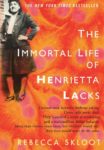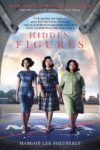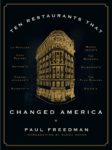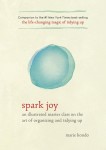HENRIETTA LACKS, Premiere Date
Friday, February 17th, 2017 HBO just announced that their adaptation of Rebecca Skloot’s long-running bestseller, The Immortal Life of Henrietta Lacks, will begin airing on Sunday, April 22 at 8 p.m.
HBO just announced that their adaptation of Rebecca Skloot’s long-running bestseller, The Immortal Life of Henrietta Lacks, will begin airing on Sunday, April 22 at 8 p.m.
Oprah Winfrey stars as Deborah Lacks, Henrietta’s daughter and the character through whom the story is told. Rose Byrne (Damages) plays Skloot. Others in the cast include Renée Elise Goldsberry (Hamilton) and Courtney B. Vance (The People v. O.J. Simpson: American Crime Story). George C. Wolfe (Angels In America) wrote the adaptation and will direct.
The book recounts the sad but fascinating story of Henrietta Lacks, a poor black woman from Baltimore who died in 1951. Johns Hopkins Hospital removed cancer cells from her body without her permission They were the first cells to live outside a human body, making them invaluable for medical research. They continue to be used today.
The story is in the news again for reasons other than the HBO series. The Lacks family is suing Johns Hopkins. Lacks’s grandson explains to The Baltimore Sun “Everyone else is making funds off of Henrietta’s cells … I am sure my grandmother is up in heaven saying, ‘Well, what about my family?‘”
A fixture on best seller lists, the book spent a year on the NYT Hardcover Nonfiction list and over four on the Paperback Nonfiction list, falling off that list just a couple of weeks ago.
 Tie-in: The Immortal Life of Henrietta Lacks (Movie Tie-In Edition), Rebecca Skloot (PRH/Broadway Books; March 28, 2017; OverDrive Sample).
Tie-in: The Immortal Life of Henrietta Lacks (Movie Tie-In Edition), Rebecca Skloot (PRH/Broadway Books; March 28, 2017; OverDrive Sample).



















